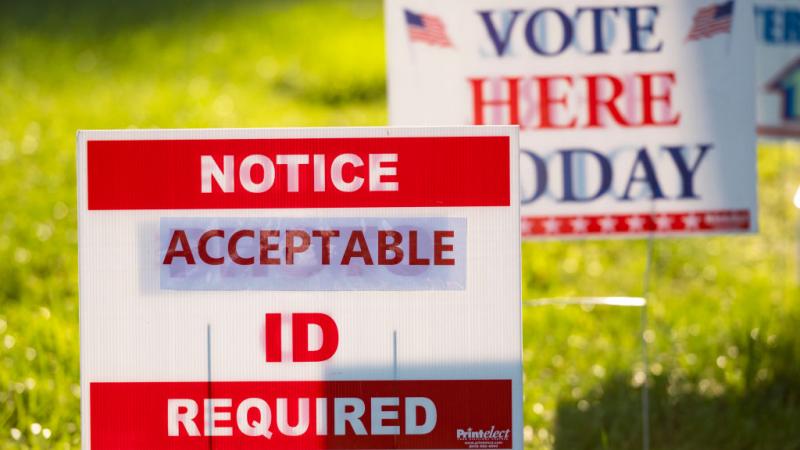Roe v. Wade in the balance: SCOTUS hears challenge to state law banning abortion after 15 weeks
The Supreme Court has a conservative majority that may alter abortion precedent.
The Supreme Court will hear a challenge today to a Mississippi law banning abortion after 15 weeks in a case that could have momentous implications for the future of the qualified constitutional right to an abortion recognized in the high court's landmark Roe v. Wade decision almost a half-century ago.
In Dobbs v. Jackson Women's Health Organization, the last operational abortion clinic in Mississippi is challenging the state's 2018 Gestational Age Act, which bans abortion prior to the age of fetal viability set by the court in Roe, and updated in Planned Parenthood v. Casey, to around 24 weeks.
Enacted in 2018, the Mississippi law hasn't gone into effect, as a federal district court blocked its enforcement following the lawsuit filed by the abortion clinic. The conservative Fifth Circuit Court of Appeals later upheld that ruling.
While the abortion law doesn't make exceptions for rape or incest, it does make exceptions for health emergencies and fetal abnormalities.
"Abortion is absolutely a racial and economic justice issue," Shannon Brewer, director of Jackson Women's Health Organization wrote in a New York Times op-ed this summer. "A large majority of our patients are Black women like me. The legislatures passing these laws in Mississippi and other Southern states are mostly male and predominantly white. The laws are inherently racist and classist; they keep Black and brown people down. And the research is clear: A woman who is denied an abortion is more likely to live in poverty even years later."
Mississippi Attorney General Lynn Fitch argues that states should be able to make their own laws regarding abortion, as medical advances have made the 24-week fetal viability standard obsolete, with babies now able to survive outside the womb earlier.
"The Roe decision shackles states to a view of facts that is decades old, such that while science, medicine, technology, and culture have all rapidly progressed since 1973, duly enacted laws on abortion are unable to keep up," Fitch said, according to Fox News. "The Supreme Court can return decision-making about abortion policy to the elected leaders and allow the people to empower women and promote life."
If Roe is overturned, then abortion laws will be left up to the individual states. In the event that the precedent is weakened or overturned, pre-Roe abortion bans in nine states would go into effect, and automatic "trigger" bans would promptly follow in another 12 other states, according to the pro-choice Guttmacher Institute. Florida, Indiana, Montana, Nebraska and Wyoming would also likely ban abortion, according to the institute, bringing the total of states outlawing abortion to 26.
The fate of Roe will be decided by a court that has shifted to the right since the September 2020 death of liberal justice Ruth Bader Ginsburg and her replacement the following month by Trump nominee Amy Coney Barrett.
With Ginsburg still on the court in June 2020, Chief Justice John Roberts sided with the liberal justices in a 5-4 decision striking down a Louisiana abortion law that required physicians who perform abortions to have admitting privileges at a local hospital.
Now, with Barrett on the court, Roberts and the three liberal justices are outnumbered by the five conservative justices. This shift has already proved consequential, as the high court voted 5-4 in September not to block a Texas law banning abortion after six weeks. The legal novelty of the Texas law is that instead of relying on the state for its enforcement, it empowers private citizens to sue abortion providers for failing to follow the six-week rule.
With the Mississippi case, the longest-serving conservative and most senior justice on the court, Justice Clarence Thomas, will finally have a chance with a majority-conservative court to reconsider Roe and another landmark Supreme Court ruling, Planned Parenthood v. Casey, which prohibits states from placing an "undue burden" on women seeking abortions prior to fetal viability. Thomas dissented from the Casey decision shortly after he was confirmed to the court.
Thomas expressed his vehement opposition to the court's abortion jurisprudence in his dissent in June Medical Services, LLC v. Russo. "Our abortion precedents are grievously wrong and should be overruled," he wrote.
"The Constitution does not constrain the States' ability to regulate or even prohibit abortion," he added.
Mississippi's solicitor general, Scott G. Stewart, who will argue before the Supreme Court on behalf of the state in Dobbs v. Jackson Women's Health, is a former law clerk of Thomas.
The Facts Inside Our Reporter's Notebook
Links
- Mississippi's 2018 Gestational Age Act
- abortion law
- according to U.S. News and World Report
- New York Times op-ed
- according to Fox News
- According to the pro-choice Guttmacher Institute
- The Associated Press reported
- writing in his dissent for Russo last year
- according to The Washington Post
- Mississippi's solicitor general
- wrote for Fox News















